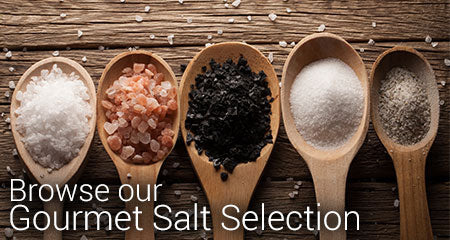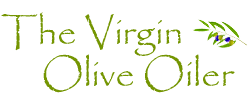Fix Your Face!! - Blog #20

Hi Everyone! Welcome back to another Friday blog. After the sun’s damage to our skin over the long hot Texas summer, and with fall and cooler weather on the way, I thought it would be a great time to investigate what we can do to “fix” our faces. That is, to enhance and hydrate our skin’s protective barrier. I can’t help but think of my sweet military grand babies. When pouting, they are commanded to fix their faces, which they do immediately. It’s the most awesome technique...if you can contain your laughter! My sweet baby girl!!
We will briefly revisit some anatomy and physiology of the skin (Blog #9).
The skin is the largest organ of the body providing a physical barrier between the external and internal environment (preventing water loss) and protecting the body from microorganisms, allergens, irritants and UV (ultraviolet) irradiation. Its job is to excrete waste (sweat), waterproof, regulate temperature and synthesize vitamin D. It also contains sensory receptors to detect pain, sensation and pressure. The structure provides a connective tissue foundation or base to support strength and flexibility while protecting deeper structures. Now, our skin is very layered. The outer layer is the epidermis, the deep is the dermis.

The epidermis provides a waterproof barrier creating skin tone. The dermis contains hair follicles, sweat glands and other structures. See blog #9 for full info! Your skin excretes fluids (sweat), yet protects your body from water as in swimming. The fluid in our cells and the fluid in plant cells is not just water, but consists of micronutrients/salts and a hydrophilic protein scaffolding forming the structure of the cells. This is called the cytoskeleton, whereas the fluid around it is the cytoplasm. In animals (vs plants), the cytoskeleton is active in controlling what is happening in the cells. It is hugely dependent on water, calcium and protons, and performs many functions that rely on this gradient. Remember that when we are young our bodies are about 70% water. However, that percentage drops after we are 50 years old to somewhere around 50%. The skin contains organs that secrete natural oils built to hold water in, yet keep outside water out. When we are young, our skin is plump, full, soft and supple. As we age and lose water, our skin wrinkles and becomes less smooth. Why is this?
Think of what happens when grapes lose water. They become raisins. When skin is dehydrated, the cells begin to crenate or wrinkle and shrink. They become the opposite of plump and full. What can we do to prevent and repair skin damage from the sun and damage from dehydration? There are multiple drinks out there now to combat dehydration as well as body lotions and soaps designed to “trap” moisture in your skin. It’s true...you must go at it from both the inside and outside.
Inside:
Water - The general rule of thumb is to drink 1/2 your body weight in ounces per day. Add an additional 8 ounces if you take medication. What kind of water you say? What about alkaline water? These days you can find alkaline water (AKW) that has a pH of up to about 9.5. Proponents believe that liquid antioxidants are absorbed more quickly, improves hydration, skin health, detoxifying properties, immune support, colon-cleansing properties, cancer resistance and weight-loss. An article published in 2016 looked at the biological effect of alkaline water consumption in a survival study with 150 mice. They revealed that alkaline water provided higher longevity in terms of “deceleration aging factor” resulting in a longer life span. “Alkaline and electrolyzed water have been shown to exert a suppressive effect on free radical levels in living organisms, thereby resulting in disease prevention. Various biological effects, such as anti diabetic and antioxidant actions, DNA protecting effects, and growth-stimulation activities were documented.” In pets with advanced cancer, increased tumor response and extended life span was noted with animal alkalization. However, there can be some negative side effects in individuals with an under-active parathyroid gland which can include lowering the stomach’s natural acidity (helps kill harmful pathogens), cause gastrointestinal issues and decrease free calcium in the body. The pH of surface water systems can vary from 6.5-8.5 and in groundwater 6.0-8.5. Hard water has a higher pH. “The ideal pH level of alkaline ionized water for long term human consumption is between 8.5 and 9.5.” (Bawell Water Ionizers)
Eat water-rich and water-retaining foods - Not only do we need water, but we need micronutrients and electrolytes. You can get this in sea salt (lower in sodium and rich in minerals), water-rich plant foods such as watermelon, cucumber, celery, apples, lettuce, broccoli, oranges, Brussel sprouts, spinach, tomatoes, leafy greens, fruits, soups, bone broths, healthy fats (EVOO), coconut water, soaked or ground chia seeds which release a form of gelled water that hydrates more effectively and slowly. Other foods that are rich in electrolytes/minerals include Greek yogurt, bananas, avocados and nuts, fruits, vegetables and legumes. Including servings from multiple sources enhance your body’s ability to stay hydrated while supplying your nerves, bones and muscles with much needed nutrients.
Exercise - Increase blood flow and circulation delivering oxygen and nutrients to the skin promoting new cell and collagen production and giving a youthful glow to the skin. Sweating further helps to remove waste and clean our pores.
Outside:
Balance skin pH - Skin’s barrier is best about 5.5. Either too high or too low can mess up your skins natural biome, causing inflammation and irritation. Natural skin creams containing hyaluronic acid help. It has a pH of around 5.0. Hyaluronic Acid (HA) is a humectant or hydrator, with an affinity to water, acting like a sponge. It can hold up to 1000x its weight in water! It can draw in moisture from the environment (humidity) and forms a moisture barrier for the skin. Daily use will make your skin appear plumper. However, hyaluronic acid’s molecule is too large to penetrate the skin so it sits on top. Most creams have modified the ingredient to Sodium Hyaluronate (SH) due to a smaller molecular weight (deeper penetration), increased stability, and a slightly higher pH. Down side is SH does not stimulate collagen production like true HA does.
Clean your skin - use a gentle, natural cleanser, makeup wipe or micellar water. Micellar water is soft water with micelles, tiny balls of oil naturally attracted to the debris on the skin. This actually cleans the skin without disrupting the natural skin lipids (oils) and claim it boost skin hydration by 90%. It includes vitamin B3, C and triple purified water. Since hard tap water is ‘charged’ with lots of dissolved minerals, it can deteriorate the protective barrier of the skin. Use with a cotton ball and wipe your face to clean pores, remove makeup and hydrate your skin without rinsing. Bioderma is the brand who invented micellar water, but many companies are jumping on the band wagon. Another brand, Mustela, is “gentle enough for newborn babies.” It is made up of 98% plant-based ingredients, including aloe vera leaf extract.
Don’t over-exfoliate, over-wash, over-scrub or use random products that could destroy the sensitive acid mantle barrier. Exfoliate 1-2x per week, staying away from abrasive scrubs. Check out Charles’ skin polisher at The Virgin Olive Oiler! My personal favorite is Lemongrass Eucalyptus!
Protect your skin - don’t strip the skin of its natural oils. Use natural lotions, gentle exfoliations, EVOO, VCO to help replenish oil and help trap moisture particularly after bathing and showering.
Use Sunscreen - protect from UV radiation as well as HEV radiation from computers and inside devices. The current recommendation is SPF 30 or more.
No makeup day - Give yourself a no-makeup day. Note** never wear makeup to bed** Let your pores be open and clean. Also, be aware that most makeup contains harmful chemicals. According to some dermatologists, here are a few benefits to your skin from not wearing makeup: decreased pore size, fewer breakouts, fewer eye infections, improvement in dry skin, fewer allergic reactions, reduced wrinkles, reduced exposure to carcinogens, reduced endocrine disrupting chemicals (disrupts hormones).
Get plenty of sleep - Okay. Here it is again! Duh. During sleep, blood flow increases and your skin repairs damage from UV exposure as well as rebuilding collagen while muscles relax after a long day. Apply a moisturizer or overnight moisture mask and place a glass of water on bedside table while you sleep.
Massage - Massaging your skin stimulates blood flow and collagen production. I recently came across (thanks to my sweet daughter-in-law) some cupping massage tools made of silicone. I started using them about 3 weeks ago. I use a blend of EVOO and VCO to enhance gliding. I’m beginning to see improved skin tone, diminished wrinkles and fine lines, particularly around my eyes.
What can your face tell you about your body? Check out the map of the face below. Do you have acne or breakouts in a certain area?

Our bodies tell us information about our health. It shows up on our face. If your liver is in distress, you may have darkening under your eyes for example. Listen to your body. Give it the best ingredients to allow it to heal from the inside out. Use the best skin care products. Check out the house made soaps and body polishes at The Virgin Olive Oiler! They do wonders for your skin!!!
So, until next time my friends, fix your face with hydration, EVOO, moisturizing cream and massage!! Drink, drizzle, digest high polyphenol EVOO, eat fatty fish, drink lots of water, get plenty of sleep, give your digestive tract some pre/probiotics, exercise your body and mind. #EVOO
This blog is intended for informational purposes only. Discuss strategies with your Healthcare Practitioner.






